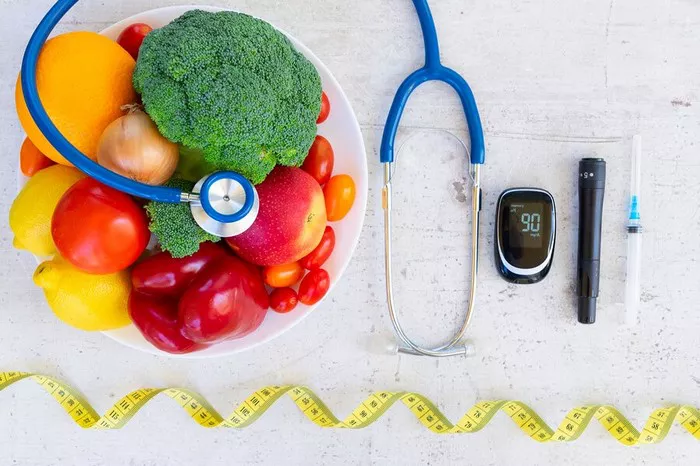Managing carbohydrate intake is one of the most effective strategies for diabetics aiming to lose weight. However, the ideal carbohydrate intake varies depending on individual factors such as metabolism, insulin sensitivity, activity levels, and overall health. This article provides an in-depth analysis of carbohydrate requirements for diabetics looking to shed extra pounds, while maintaining balanced blood sugar levels and overall well-being.
Understanding Carbohydrates and Their Impact on Diabetes
Carbohydrates are the body’s primary source of energy, but they also have the most significant impact on blood sugar levels. When consumed, carbs break down into glucose, which enters the bloodstream and requires insulin for absorption into cells. For individuals with diabetes, impaired insulin function can lead to excessive blood sugar levels, making carb management essential.
Carbohydrates are categorized into three main types:
Simple Carbohydrates: Found in sugary foods, processed snacks, and sweetened beverages, these carbs cause rapid blood sugar spikes and should be minimized in a diabetic diet.
Complex Carbohydrates: Present in whole grains, legumes, and vegetables, these carbs break down more slowly, leading to gradual glucose release.
Fiber: A non-digestible carbohydrate that does not impact blood sugar but aids in digestion, supports gut health, and enhances satiety.
Balancing the right type and amount of carbohydrates is critical for diabetics aiming to lose weight while maintaining optimal blood glucose control.
Recommended Carbohydrate Intake for Diabetic Weight Loss
There is no universal carbohydrate requirement for diabetics, as individual needs vary. However, research and clinical experience suggest several effective approaches:
1. Moderate-Carb Approach (100–150g per Day)
This range is suitable for diabetics who engage in regular physical activity, maintain stable blood sugar levels, and need a sustainable approach to weight loss. Key characteristics of this plan include:
- 30–50g of carbs per meal
- 10–20g of carbs per snack
- Focus on whole, nutrient-dense carbohydrates such as quinoa, brown rice, and vegetables
This approach is often recommended for diabetics who do not require strict carb restriction but still aim to reduce weight gradually while managing blood sugar effectively.
2. Low-Carb Approach (50–100g per Day)
A lower carbohydrate intake can enhance insulin sensitivity, promote fat loss, and stabilize blood glucose. This strategy works well for individuals who struggle with insulin resistance, metabolic syndrome, or difficulty losing weight. The main features of this plan include:
- 20–30g of carbs per meal
- 5–10g of carbs per snack
- Emphasis on fiber-rich, non-starchy vegetables and lean protein sources
Many diabetics find this range effective for fat loss and blood sugar regulation without feeling excessively restricted.
3. Very Low-Carb or Ketogenic Approach (20–50g per Day)
The ketogenic diet, characterized by extremely low carb intake, forces the body to use fat as its primary energy source. This approach can be effective for diabetics with obesity or severe insulin resistance. Key principles include:
- Less than 20–25g of net carbs per day
- Focus on high-fat, moderate-protein foods
- Elimination of most grains, fruits, and starchy vegetables
While this method can lead to significant weight loss and improved glycemic control, it requires careful monitoring and should be implemented under medical supervision to avoid potential risks, including hypoglycemia or nutrient deficiencies.
Factors Affecting Optimal Carb Intake
1. Individual Insulin Sensitivity
Diabetics with severe insulin resistance may require a lower carb intake to maintain blood sugar stability, whereas those with good insulin function might tolerate moderate carbs.
2. Activity Level
Physically active diabetics can generally consume more carbohydrates without negative effects, as exercise enhances glucose metabolism. Strength training and endurance activities improve insulin sensitivity, allowing for a more flexible diet.
3. Type of Diabetes
Type 1 Diabetics: Need careful insulin management alongside carb counting to prevent blood sugar fluctuations.
Type 2 Diabetics: Typically benefit from lower-carb approaches to improve insulin resistance and promote weight loss.
4. Medications and Insulin Use
Those on insulin or blood sugar-lowering medications need to balance carb intake to avoid hypoglycemia. Adjustments to medication dosages might be necessary when following a low-carb plan.
5. Personal Preferences and Sustainability
Adherence is crucial for long-term success. A plan should be realistic and align with an individual’s dietary habits and lifestyle.
Practical Tips for Carbohydrate Management
1. Choose High-Fiber, Low-Glycemic Carbs
Prioritize vegetables, legumes, and whole grains to slow glucose absorption and promote fullness.
2. Monitor Blood Sugar Levels
Tracking how different carb intakes affect blood sugar helps refine an optimal plan. Continuous glucose monitoring (CGM) can provide valuable insights.
3. Pair Carbs with Protein and Healthy Fats
Combining carbs with protein or fat reduces blood sugar spikes and improves satiety. For example, pairing whole-grain toast with eggs or adding avocado to a salad stabilizes post-meal glucose levels.
4. Be Mindful of Portion Sizes
Even healthy carbs can cause weight gain if consumed in excessive amounts. Using measuring cups or a food scale can aid in portion control.
5. Plan Meals in Advance
Meal prepping and reading food labels help prevent unintentional high-carb consumption.
6. Stay Hydrated
Drinking sufficient water supports metabolism and aids in weight loss.
7. Seek Professional Guidance
A registered dietitian or diabetes specialist can provide personalized recommendations based on medical history and lifestyle.
Conclusion
For diabetics aiming to lose weight, carbohydrate intake should be carefully tailored to individual needs, considering factors such as insulin sensitivity, activity level, and personal preferences. A moderate-carb intake (100–150g per day) is suitable for gradual weight loss, while a low-carb approach (50–100g per day) may yield more significant results. For those with severe insulin resistance, a very low-carb or ketogenic diet (20–50g per day) can be an effective strategy but requires medical supervision.
Regardless of the specific approach, prioritizing whole, fiber-rich foods, monitoring blood sugar, and maintaining consistency is key to achieving long-term success. By making informed dietary choices, diabetics can effectively lose weight while maintaining balanced blood glucose levels and improving overall health.
Related topics:
What Should Someone with Prediabetes Eat?



























